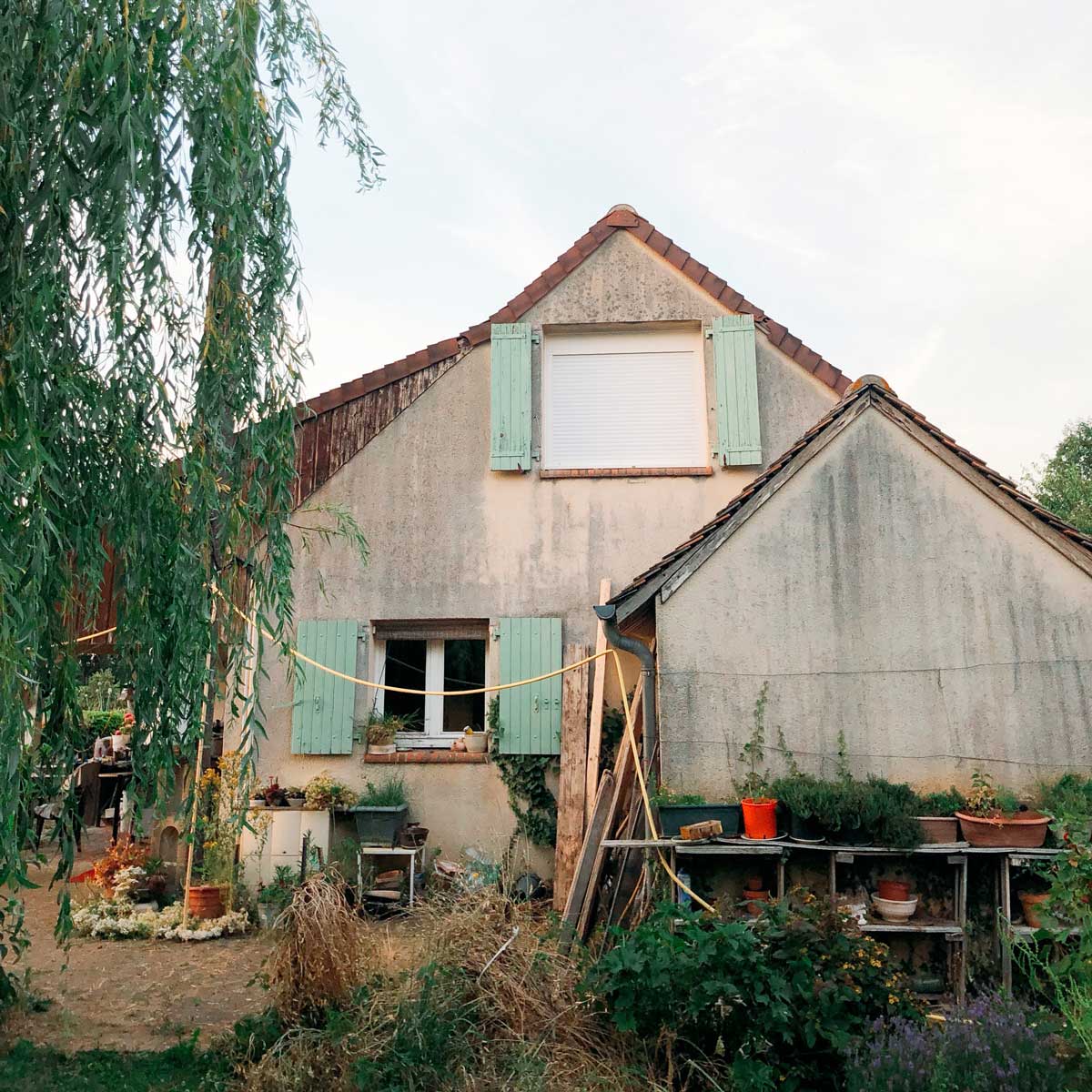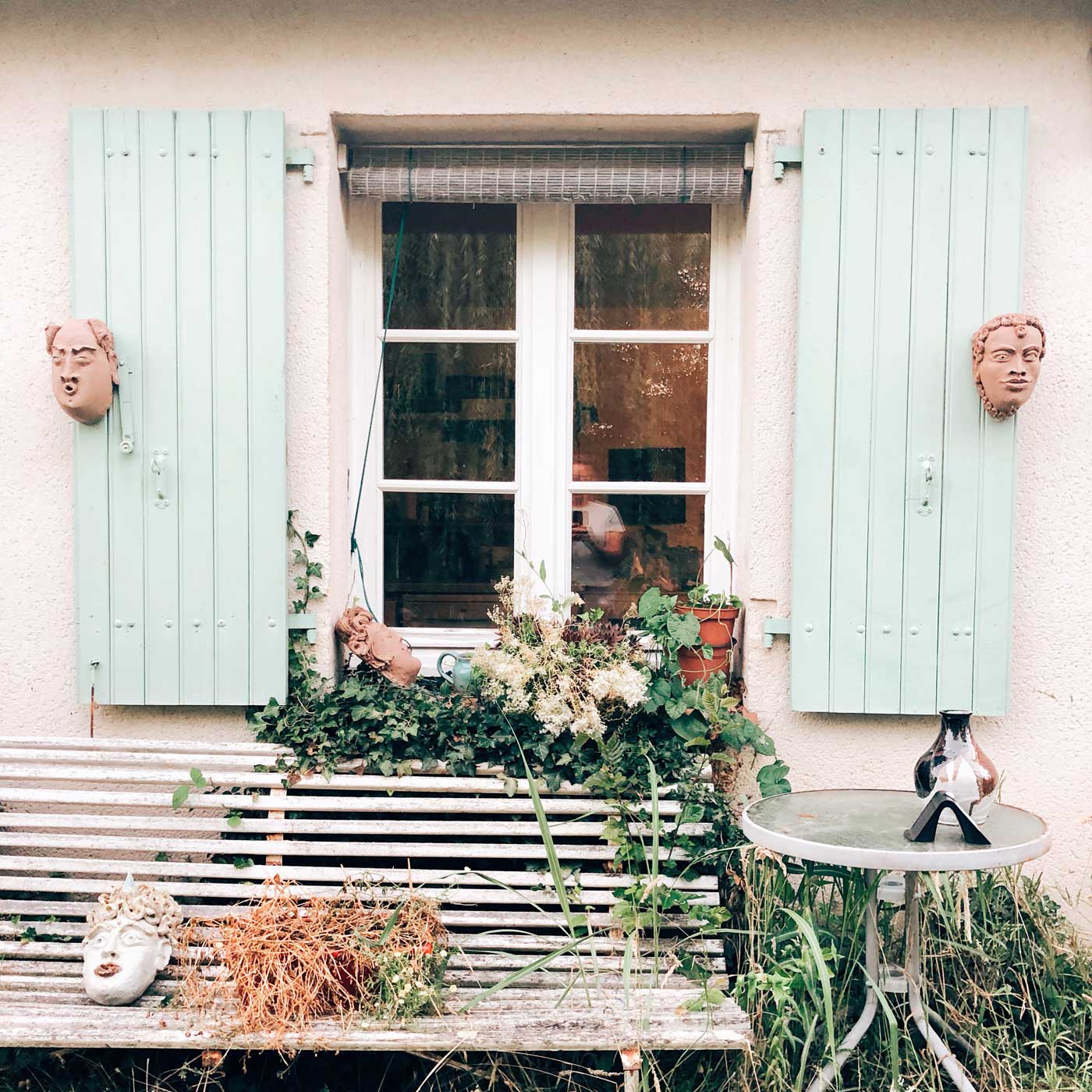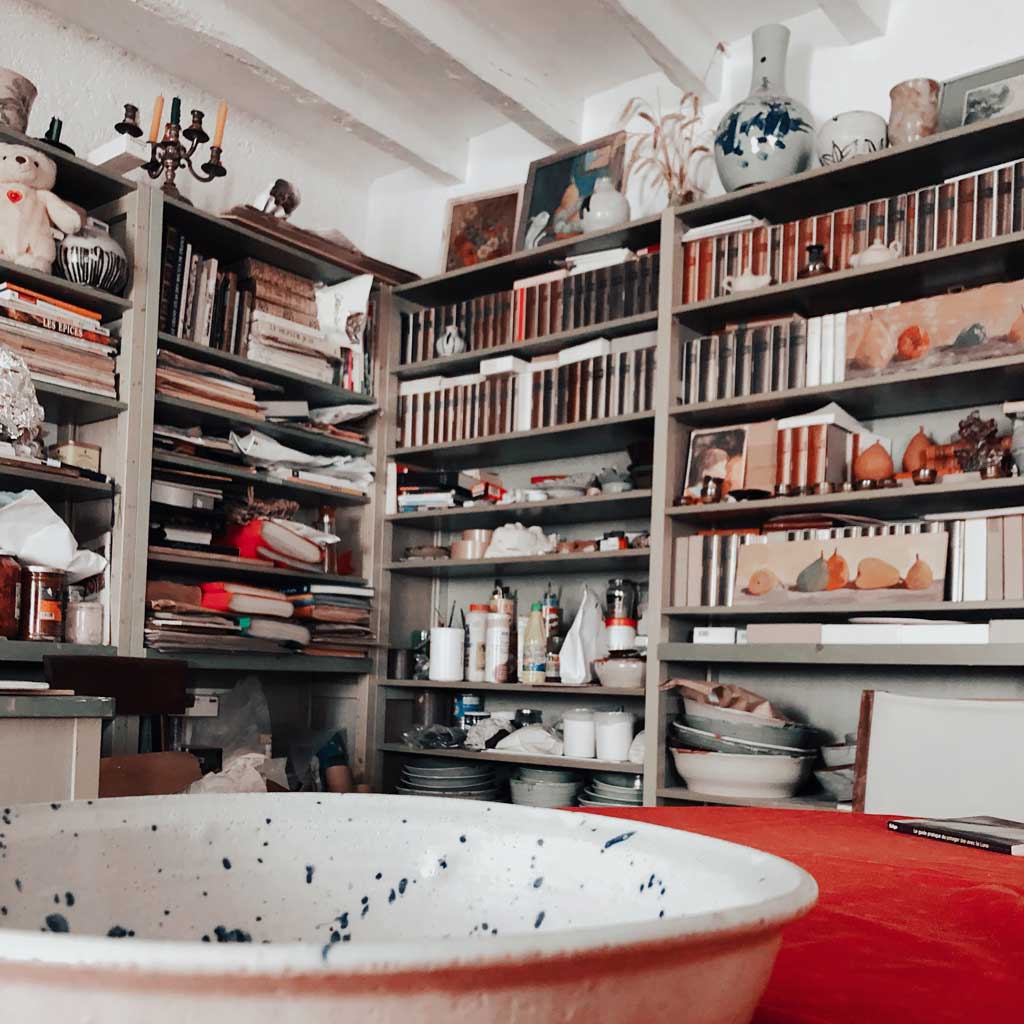“You ARE French. You don’t know it, but you already are.” My host, Monsieur Maigrot, tells me this in a thick French accent.
Last night we all sat at the table under a huge weeping willow tree in the backyard, just like we do every evening as the sun sets slowly. We ate just as slowly from the table full of food that Monsieur Maigrot had taken hours to prepare in the kitchen.
As we sipped our wine, we listened to his stories about his childhood. He grew up poor. He ate a lot of potatoes and canned fish in oil. And he hated school.
"When I learned English in school, I learned it out of a book, the way I thought it should say the word, you know. My professors, eh, they had never been to America or England so they, too, say it out of the book the way they think it should say, so we all speak, eh, the English that no one else speak. But, eh, a lot of the words in English are the same in French, just a little different."
When he was 20 years old, he hitchhiked to the Middle East with 20 euro in his pocket. Once, after he ran out of money, he met a stranger who wrote something in Arabic on a napkin and gave it to him, telling him to show this to anyone and ask whatever he wants. So he did that and he ate for free the rest of his time traveling there. He still doesn't know what the writing on the napkin said. Now he says he's too old to travel, so that's why he loves hosting travelers like my sister and I.
-
The perfectly imperfect countryside of France.
On Monday morning, my sister and I took a bus from Paris to the countryside of France. Once we arrived in the little town, we met our host for the week. Monsieur Maigrot found us at the station, using hand signals to motion us over to him. He's 72 years old, with a head full of white and gray hair, but he's as lively as a man 20 years younger. At first we thought he couldn't speak any English because he was so quiet.
When we arrived at his family's house in the countryside, we knew we had reached a little slice of heaven on earth. The house and studio are surrounded by gardens and willow trees, hemmed in by lush green pastures and rolling hills, stitched with lines of trees and twisting country roads. The house is filled with hundreds of pieces of art, both paintings and ceramics, because Monsieur Maigrot is an artist.
"PERFECT RUINS IT."
In exchange for hosting us, we help the Maigrot family with their gardening each day for a couple of hours. We always end up doing a lot of talking while we eat the fresh fruit that we pick off of the trees or bushes around us.
On the first day, I trimmed all of the bushes along the cobblestone sidewalk that leads to the studio. I wanted to make sure they were perfect, so I kept going over them to snip off any branches I had missed. Monsieur Maigrot walked over and watched me work.
"I don't much care for perfect. Perfect ruins it."
I stopped working on the bushes and stepped back. We stood there looking down the row of bushes together.
"It's good," he said, and I nodded with a smile. I understood.
"Perfect ruins it." Those simple words echoed in my head for the rest of the day.
How many times have we tried to make everything perfect while missing the beauty of what already exists? How many times have we waited until something was perfect, missing an opportunity for growth or progress?
"Perfect ruins it."
Monsieur Maigrot's statement sounds really similar to a French phrase that I've come to love - "parfait en ruine", meaning "perfect in ruins".
"Parfait en ruine"
Perhaps the magic of French culture is in its ability to find a natural juxtaposition between chaos and perfection. Everywhere I go, things are imperfect in an organic, beautiful way. Parfait en ruine. Perfect in ruins.
As a girl, I never liked things to be too clean. Clean, perfect houses always felt unwelcoming and stifling to my personality. I always felt more comfortable in the middle of clutter. I loved the artistic look of a loose stack of books and uneven, knotted rugs, and strange colorful art. I never cared for perfection, but I never knew it was “French” to dislike perfection. *insert a wink*
As an adult, I’ve been conditioned to strive for perfection. Without perfection, no one measures up. It seems like nothing is ever good enough unless it can be made perfect. It feels like you’re never going to measure up to the person who has the “perfect” life and the “perfect” manners.
Perhaps, it's time to get go of the goal of perfection and enjoy life as it happens — both as we create imperfectly and receive its imperfect creations.
Less perfect, less frustration. Less perfect, less resentment. Less perfect, less jealousy. Less perfect, less micromanaging.
Less perfect, more authenticity. Less perfect, more wild and free. Less perfect, more gutsy and true to what really matters. Less perfect, more kind. Less perfect, more organic progress. Less perfect, more joy.
Less perfect, more living.
It's not about not trying at all. It's not about apathy. It's not about shrugging off our responsibilities. It's about really embracing life and growing right where we are. It's about tuning our hearts to see and appreciate all the good in every living moment. Because in every moment of gratitude, we come into a fullness of living, lacking nothing.
So today, when the coffee burns your tongue, or the meeting runs late, or dinner doesn't turn out right, just say to yourself in your best thick French accent, "Eh. I don't much care for perfect. Perfect ruins it."
And remember, you ARE French.




